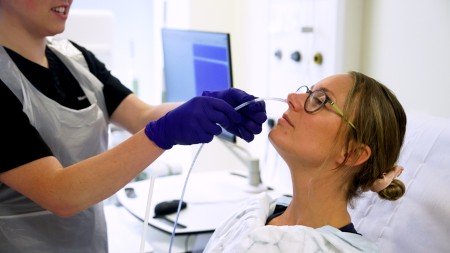
Urodynamic Science is a specialised area of healthcare sciences focused on diagnosing and understanding conditions affecting the bladder, urethra, and pelvic floor. Clinical Scientists use specialist equipment to assess how the bladder stores and releases urine, helping identify issues such as urinary incontinence, overactive bladder, and urinary retention.
Working closely with doctors, nurses, and patients, Urodynamic Clinical Scientists play a key role in improving quality of accurate diagnosis and tailored treatment plans.
As part of your role, you may:
-
Perform pressure tests to assess bladder and urinary tract function
-
Provide compassionate support to patients
-
Analyse results and generate detailed reports to guide clinical decisions
-
Aid in diagnosing conditions including stress incontinence, overactive bladder and urinary retention
-
Use ultrasound to assess urine in the bladder
-
Help to provide treatments, such as 'neuromodulation' to treat urinary incontinence
-
Contribute to research and improve diagnostic techniques in the field.
Entry Requirements
-
Apply for a place on the graduate entry NHS Scientist Training Programme for which you must have a 1st or 2:1 in an undergraduate honours' degree or an integrated master’s degree in a pure or applied science subject.
-
With experience as a Clinical Scientist you can apply for Higher Specialist Scientist Training (HSST).
Skills and qualities of a Clinical Scientist
-
Strong interest in science and technology, with a passion for continuous learning.
-
Calm and confident demeanour, combined with a compassionate approach to patient care.
-
Comfortable using modern technology and specialist equipment.
-
Meticulous attention to detail.
-
Ability to work effectively as part of a team.
